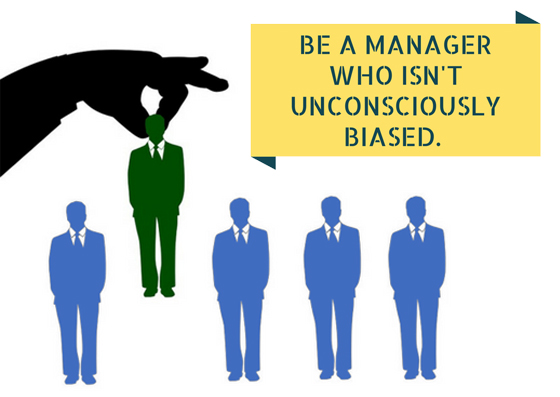
Why Managers Need To Be Sensitized Towards Unconscious Bias, And How To Do It
Managing an organization isn’t an easy job. There are many different factors that decide whether you are a good people manager.
A good manager has many roles – a good leader, someone who commands respect, and someone is fair and ethical. The biggest attribute for a good manager, though, is being unbiased. Most managers pride themselves in being unbiased in their choices and actions.
But how many managers areactuallyaware that they are be unconsciously biased?
What Is Unconscious Bias?
Here is an example to help you understand this better. Let us say you have to make a promotion, and you have two people in mind. Being a fair manager, you decide to choose A, because A is a better candidate than B.
But why is A a better candidate,to you? Maybe because his or her strategies are on point, he or she is more productive than B, and the work results are better. However, what if research suggests that it is human instinct to categorize people on a variety of things, from skin colour to social status?
What if you unconsciously chose A over B because of (say) his or her elevated social status?
That’sunconsciousbias—social stereotypes about certain groups of people that you tend to form outside your own conscious awareness.
Why Should You Avoid Being Unconsciously Biased
In your defence, to be unconsciously biased means exactly that- you’re not aware of it. So you might think that it is something you don’t have control over.
You need to keep in mind that doing so results in damaging consequences, both in the way you manage, and the employees who are at the receiving end. When you are influenced by unconscious bias, you tend to discriminate between people.
This can be detrimental to your organization, to the way your employees perceive you, and your relationship with your employees. No one likes to be a victim of bias and prejudice.
Four Ways To Overcome Unconscious Bias
- Accept
The first step to solving a problem is toaccept that you have a problem in the first place. It is important to acknowledge the fact, that no matter how much you deny it, it is human tendency to be biased.
You need to figure out the areas in which you are unconsciously biased. So introspecting on the same is important. This might be due to a preconceived notion or stereotype—so admitting it to yourself is the first step.
- Find Out What Your Biases Are
Once you have admitted that you have unconscious biases, you need to find out in which areas this bias/biases exist. This is far more challenging, since pinpointing certain specific attributes, is difficult. But spend time over how you have used parameters in the past to evaluate team members, potential employees or even peers. Identifying those is the key.
- Is This Bias Justified?
Make sure to ask yourself if this bias is justified, once you have figured out that you are biased and what your biases involve. For example, there is a new employee from a psychology background in your marketing firm. You don’t want to get him or her involved because you think he/she won’t be helpful in marketing. Would it be fair to assume this rather than trying to use his or her skills in a fair manner and understand if there is a possibility to fit them into a marketing role?
Yet another example is if you see yourself thinking that the new female employee won’t be up to a traveling job because “she’s a woman,”. You are being unfairly prejudiced and it is time to change that mindset.
- Condition Your Way Of Thinking
When you realize that your biases are unfair and unjustified, you need to tell yourself that you cannot hold on to that bias anymore.
If you have a negative bias towards the women at work, condition yourself to think the opposite. If there’s an employee from a different race, don’t letthat fact stop you from allotting a specific work or promotion.
Expose yourself to ideas, images and words that challenge negative stereotypes.
Being a biased manager is not the sign of a future leader. Your strength will lie in being able to manage and leverage a diverse team. Tackling unconscious bias is a slow process, but it isn’t impossible.











